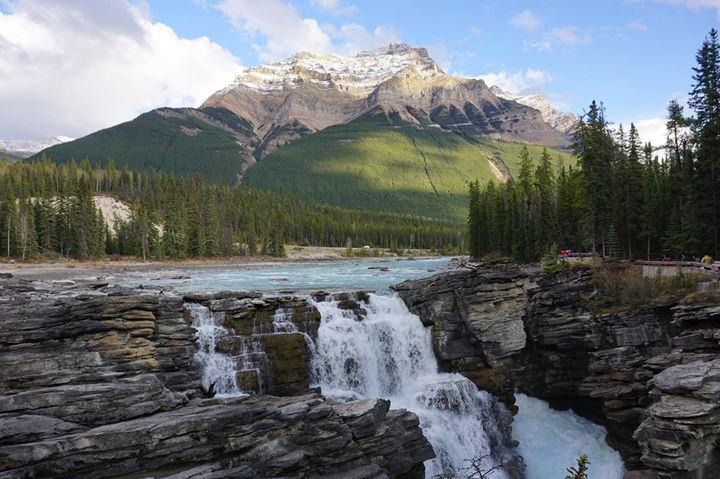-
Posts
1470 -
Joined
-
Last visited
-
Days Won
446
Content Type
Profiles
Forums
Events
Everything posted by UmarMakhzumi
-
Welcome Volkan. Always glad to have brothers fromTurkey here..
-

Simply supported stairs with large slab thickness
UmarMakhzumi replied to Fatima Khalid's topic in Concrete Design
Fatima, In order for landings to be considered supported so you can consider a smaller length of stairs. stair length = 'total length - 2 x landing length' , you need to have both Beams C and D at 6'6" level and again have 2 Beams B and C in this case at 11'6" level. In that way both landings are 2 way supported and the stair flight between them can be considered as one way. You will have to design the landings as two way supported on two edges only. Thanks. -
Just a note on shrinkage, I have seen a lot of engineers provide top reinforcement in slabs that are even 6" because of shrinkage. This might look like an overkill to some but every engineer has its own preference based on judgement and experience. Thanks.
-

Simply supported stairs with large slab thickness
UmarMakhzumi replied to Fatima Khalid's topic in Concrete Design
Fatima, You can use a smaller slab thickness and do a deflection check to make sure stairs deflection it is below the maximum allowable. Service Live Load deflection based on Canadian Code should be less than L/360. I don't remember what ACI said, you can look it up. It should be similar. Other ways to reduce thickness would be to run a beam at the centre of stairs flight. For a stair run like shown above, such a beam would be hidden. Let us know how it goes. Thanks. -
Hi Sara, We can't share copyright material as it is against this forum's guidelines. You can read them here: Thanks.
-

The Standard Soil Profile Type Map of Pakistan
UmarMakhzumi replied to Fawad Najam's topic in Seismic Design
Fawad, You can also find values of Ss and S1 for famous Pakistani cities in IBC Overseas Building Reference. See the discussion below: Thanks. -
Wsalaam... That is the general principle, however I was wondering if people could share their personal experiences. Here is an article about it as well: http://www.cbc.ca/news/health/screen-time-preschool-1.4140491 Thanks.
-

Flextural test for reinforced concrete beam standard procedures
UmarMakhzumi replied to sara's topic in Students Zone
Hi Sara, Here are a few standards that provide methods to test beams in flexural. Code requirements would vary with region. Thanks, -
Hello Everyone, How much screen time would you recommend for your own kids. My son is 10 months old and I try to limit his screen time (Both TV and iPad) to max 1- 1.5 hours per day Whats your take on this? Thanks.
-
Good books for timber and timber connections are the ones from the Canadian Wood Council: wood design manual, The Engineering Guide for Wood Frame, etc. All of these are listed in the CWC website: https://webstore.cwc.ca/technical-books Hope this helps.
-
Etabs.
-
-
I have designed a lot of such columns and results are always normal. Thanks.
-

High Loads under Columns and Bearing Capacity Failure
UmarMakhzumi replied to muneeb1213's topic in Foundation Design
Please check this thread for the answer:- 12 replies
-
- foundation bearing failure
- foundation
-
(and 1 more)
Tagged with:
-
In Canada, same is the case. The notaries have even gone digital. Most professional engineers digitally stamp their drawings and pass it to construction which can print it to the required sizes thus minimizing paper copies. All submissions to jurisdiction are electronic versions as well. Thanks.
-

Collectors requirement and Omega factor in foundation design
UmarMakhzumi replied to Waqas Haider's topic in Seismic Design
Its an excellent question. I am commenting right now so that the post goes on top of all the other posts. Would reply shortly.- 3 replies
-
- collectors
- omega
-
(and 5 more)
Tagged with:
-

High Loads under Columns and Bearing Capacity Failure
UmarMakhzumi replied to muneeb1213's topic in Foundation Design
Zia has summed it nicely. My comment is only on the use of screw/ helical piles. One of the common risk associated with the use of screw piles in sand, that you should raise with stakeholders is hitting a boulder. I have experienced some pile refusals in similar situations. Generally I hold a constructability meeting at 60% design review to discuss the pros and cons and decide if client wants to take that risk. With driven piles, you can drive through boulders most of the time. With screw, refusals are more common as helix plate wouldn't drive down if obstructed by boulder. You will need geotechnical input, pile driving records of area (if available) and construction input to make a recommendation to the client. Thanks.- 12 replies
-
- foundation bearing failure
- foundation
-
(and 1 more)
Tagged with:
-
@EngrUzair has explained it very nicely. I will just add two things: First that the only benefit would be to student graduating after the date the accord has been signed. So existing graduates aren't getting any benefit. Also there are specific Pakistani universities that are being recognized under the accord. This further narrow downs the list of potential beneficiaries. The second thing like Uzair Sb mentioned is the benefit of education accreditation. A professional engineer registered with PEC and working in Pakistan who wishes to practice engineering abroad would still need to go through the complete application process (Washington Accord doesn't remove that requirement) but the only benefit he/ she would have is that the education verification would be skipped provided he graduated after the ratification of Washington Accord from one of the universities recognized under the accord at that time . Thanks.
- 3 replies
-
- pec
- washington accord
-
(and 1 more)
Tagged with:
-
What Rana means is to play with the wall stiffness modifiers till you get 25% base shear resisted by columns. This is different from standard stiffness modifiers applied to each structure irrespective of their geometry as per Section 10 of ACI. Thanks.
-
The securities and exchange commission of Pakistan has established an excellent resource for investor education. The website is: http://www.jamapunji.pk Please do check it out as it contains a lot of useful infomration. Thanks.
-
https://framecad.com/en/enquire You can fill out the form here and ask them to send you a trial. Thanks.
-
Piers are designed at 2 locations. Top of story and bottom of story. Also, FYI Etabs assigns pier labels with respect to story level so that is why the same pier label can be repeated on different levels. Thanks.
-
The answer to your question is already in Waqas's posted reply above. However, I will elaborate it further. You can but there are benefits assigning different labels. For the above case, reinforcement would be reported separately for each wall segment which is extremely useful (and more practical) for detailing. Below is suggested Wall Pier and Spandrel Labelling scheme (Source: CSI Wiki). Wall Pier Labelling Scheme Wall Spandrel Labelling Scheme You can easily draw this in Section Designer. The only catch is that if you are using the "Wall Stack" feature in ETABS, it automatically assigns the same pier label to all walls. To simply things, you can reassign walls new pier labels in that case. Use a regular mesh and always use edge restraints. The role of edge restraints is that they provide continuity to adjacent edges which is extremely useful for the case where meshing doesn't line up (as it can cause instability issues). Thanks.
-

High Loads under Columns and Bearing Capacity Failure
UmarMakhzumi replied to muneeb1213's topic in Foundation Design
I will just add that adding beams with raft/ mat foundation wouldn't reduce the bearing pressure. With or without beams, the same load would get transferred to exact same area (as bearing area stays the same). The only difference that beams would make is that they would reduce the thickness of mat and eliminate punching at columns. Thanks.- 12 replies
-
- foundation bearing failure
- foundation
-
(and 1 more)
Tagged with:
-
The tutorial talks about importing a complete architectural plan. The same example can be used to import grids. It just discusses option of importing 3D but the example presented is about an architectural plan not 3D. You can also follow Waqas's posts, whichever is easy for you.




